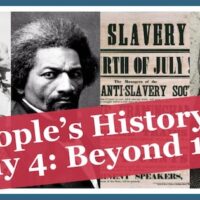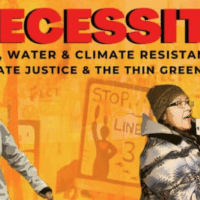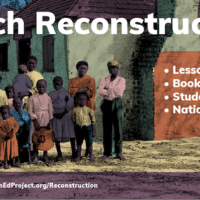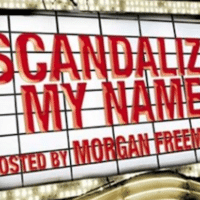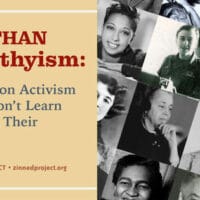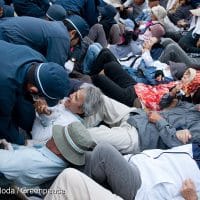-
People’s history of fourth of July
A collection of more than a dozen people’s history stories from July 4th beyond 1776. The stories include July 4th anniversaries such as when slavery was abolished in New York (1827), Frederick Douglass’s speech “The Meaning of July Fourth for the Negro” (1852), the Reconstruction era attack on a Black militia that led to the Hamburg Massacre (1876), protest of segregation at an amusement park in Baltimore (1963), and more.
-
NECESSITY: A two-part documentary series on climate resistance
Grounded in people and places at the heart of the climate crisis, ‘Oil, Water and Climate Resistance’ traces the fight in Minnesota against the expansion of pipelines carrying toxic tar sands oil through North America.
-
National Report on the Teaching of Reconstruction
In his 1935 book, Black Reconstruction in America, W. E. B. Du Bois wrote, “One cannot study Reconstruction without first frankly facing the facts of universal lying.” He denounced the Dunning School, the dominant approach to Reconstruction at the time, which denied Black achievements and celebrated white supremacy.
-
‘Scandalize My Name: Stories From the Blacklist’
Documentary about the impact of the McCarthy era on African Americans in the film industry.
-
More than McCarthyism: the attack on activism students don’t learn about from their textbooks
In legislatures across the country, Republican lawmakers are introducing bills to curtail what educators–in public schools and universities–can say and teach about racism and sexism.
-
Fighting for Okinawa
Our story though, is much more than three short paragraphs in a textbook. It is a story about a people’s determination for sovereignty in the face of imperialism, resilience in midst of colonization, and perseverance for peace as survivors of war. Our story is urgent and it is a call for global action in the name of peace and justice. The history of Okinawa is a story of resistance but also a call to the world.

